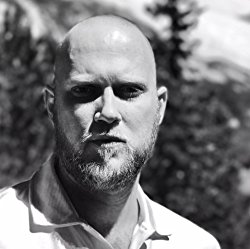When I first started writing fiction in 2009, one of the first things I learned were Heinlein’s Rules. While they all have a place in the heart of every writer, the one that sticks out the most to me is “Finish What You Start.” It’s the single most often prescribed bit of writing advice I give to aspiring authors. The ability to sit down and finish a story, good or bad, is critical to learning the craft. However, I’ve also come to understand (and experience) that there are simply times when you shouldn’t finish what you start – you should put it down and walk away.
I’ve had an idea for a novel in my head for the last several years and I’ve toyed with outlining it here and fleshing out dialogue and characters there and I decided that I’d sit down on really focus on it last year. My intent was to write about 10,000 words and really determine if the story was something I could commit to fully. While it sounded good to me, and I was pretty sure I could write it, could I make it an authentic story? Could I answer the most important question in every reader’s mind – “Who gives $&@#?” I believed I could and I promptly sat down wrote about 8,500 words and stopped dead – seriously, like in the middle of a sentence.
At the time, I believe the words I spoke to myself were “What in the hell are you doing, Kevin?” My great idea wasn’t as great as I’d believed it to be. From my reading and occasional instruction of outlining and character dynamics, I realized that while I had a fun premise to explore, my character was simply horrible. I’d designed goals for them and tried valiantly to put them into some type of story line capable of captivating an audience. On paper, everything was a fit, but I realized that I didn’t “love” my protagonist. In fact, I kinda loathed them. Every time I wrote their dialog in that 8,500 starter, I cringed. It got to the point at the end that I threw up my hands and said “I’m not finishing this.”
A few years ago, this would have bothered me tremendously. Having learned that finishing what you start is critical to success as a writer, my younger self would’ve pressed on and turned out something vaguely akin to a novel that was destined for the circular file. Instead, I realized that while I’d seemingly done my homework, outlined and plotted the story, and built my character in a way I thought would work – the whole mess didn’t come together. Was it a result of my talent? Or my motivation? Or did I just not believe in the story anymore? Your guess is as good as mine. What mattered was that my brain said it was time to stop – that I wasn’t getting anywhere fast and that I was laboring over a first draft instead of letting the ideas around my outline flow. That story went into the dark recesses of my hard drive likely never to be heard from again. It simply didn’t work. I didn’t need to send it to my first reader or any beta readers – I could sense that the story was dead on arrival and I stopped.
I recently went back at looked at what I’d written in the 8,500 word, suddenly truncated start and completely agreed with my decision. In some similar cases, I’ve looked at something with fresh eyes and starting typing anew – pushing that gestated idea to finalization. As I read the first chapter, I thought I might be able to do just that. By the end of chapter three, I knew it was a lost cause. That character, and their storyline, went into the experience file. From there, I went back to another one of Heinlein’s rules – “Write something else.”
I’ve been busy ever since.

